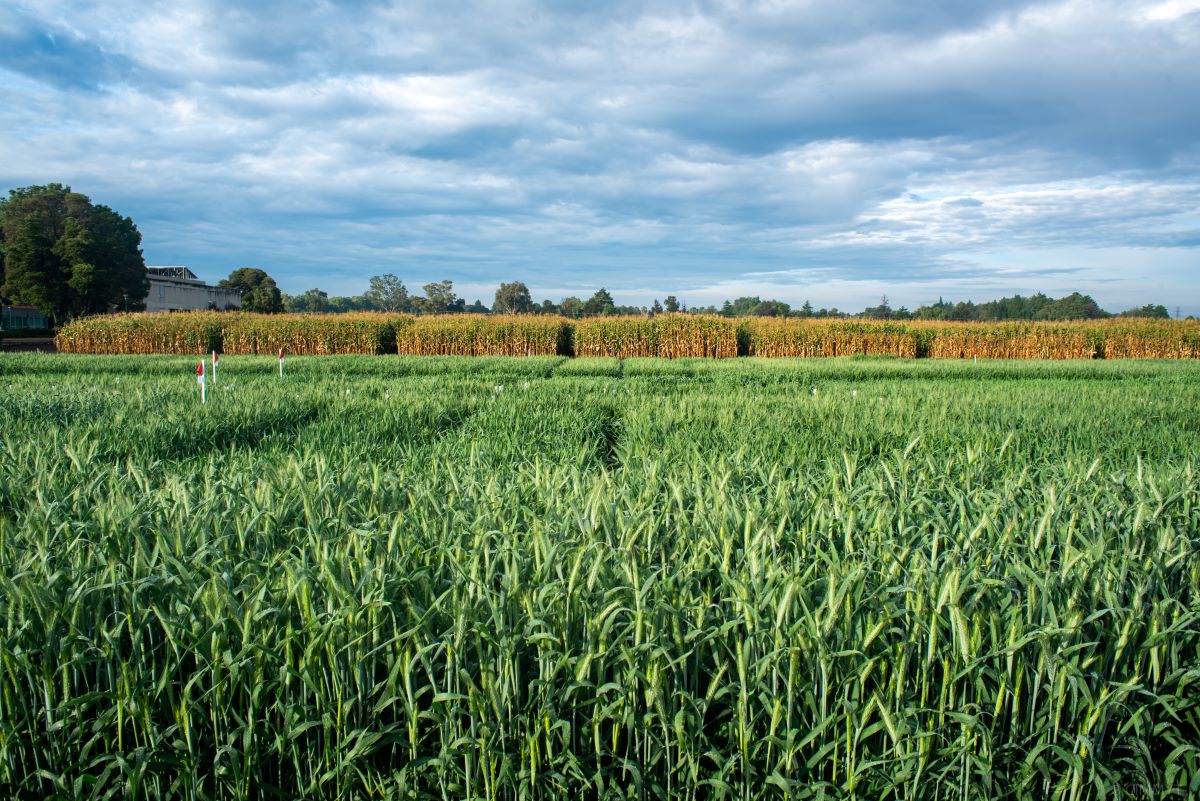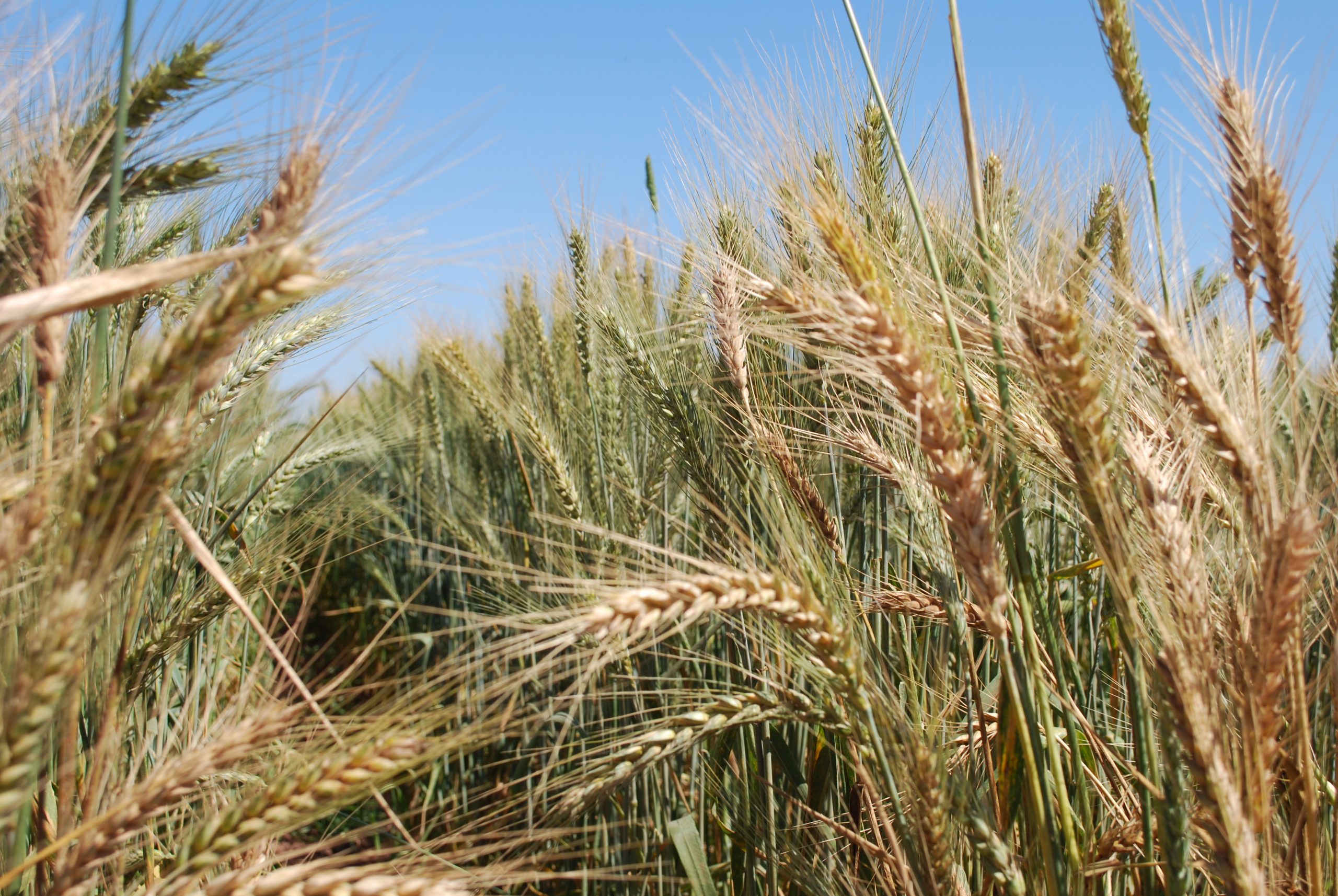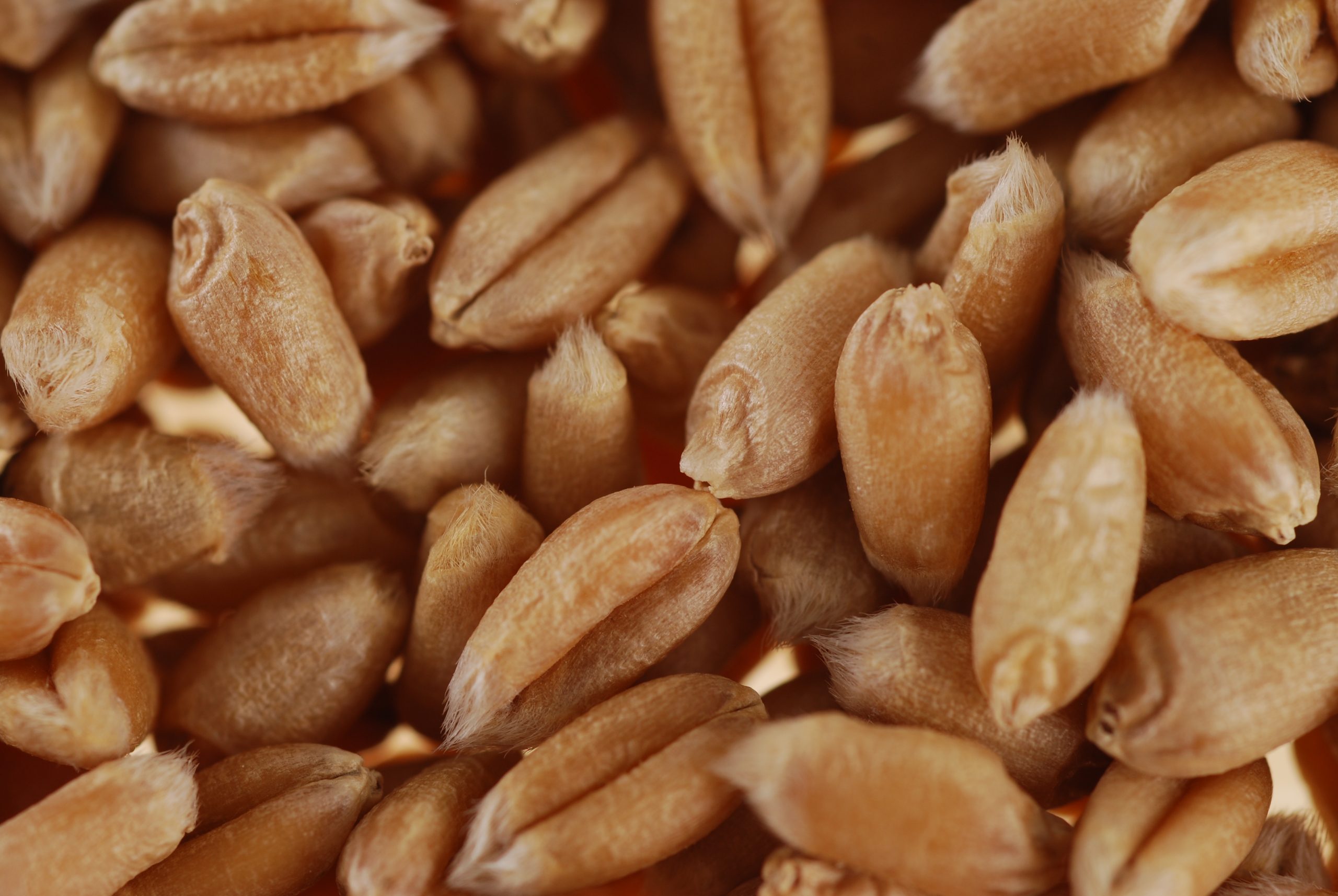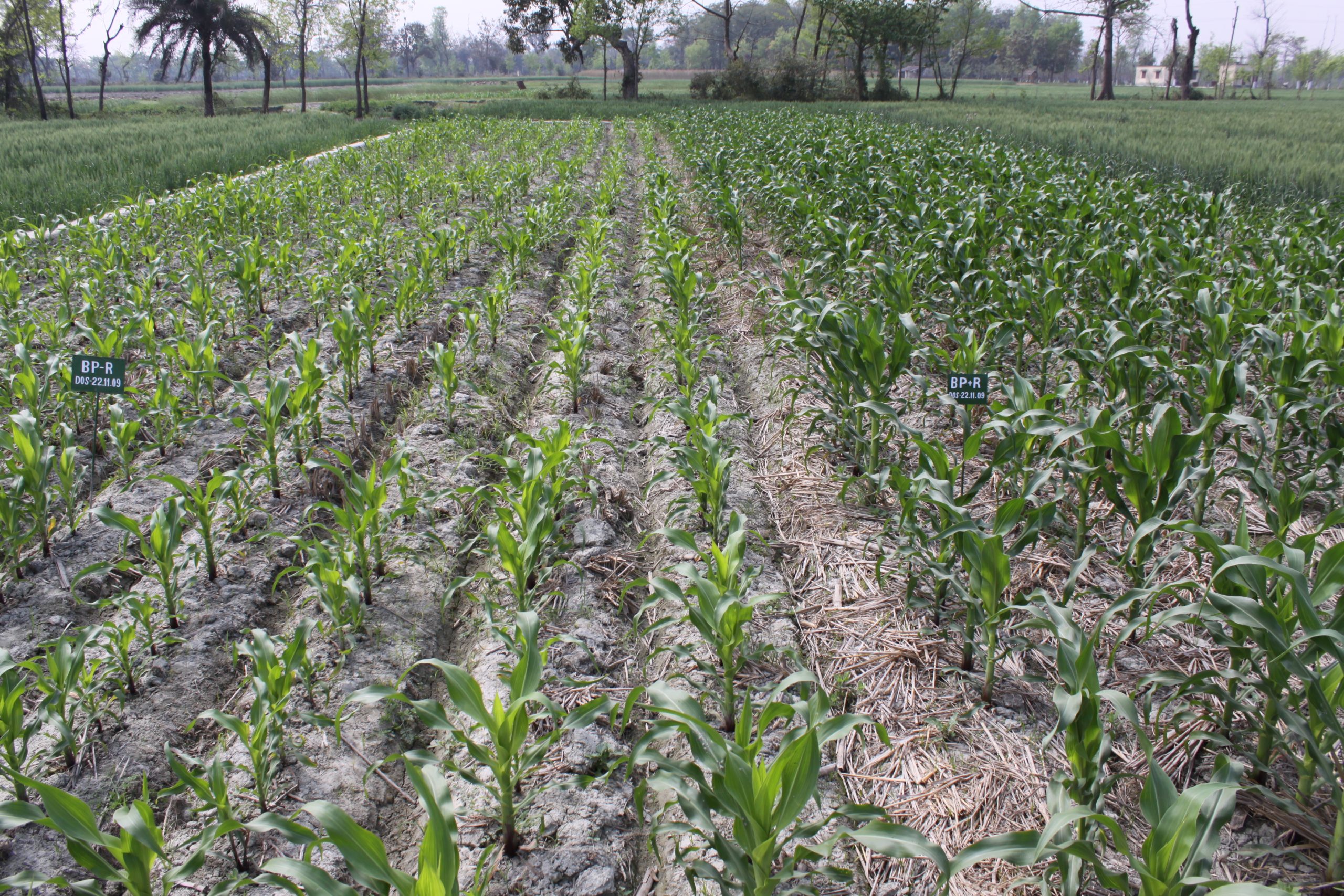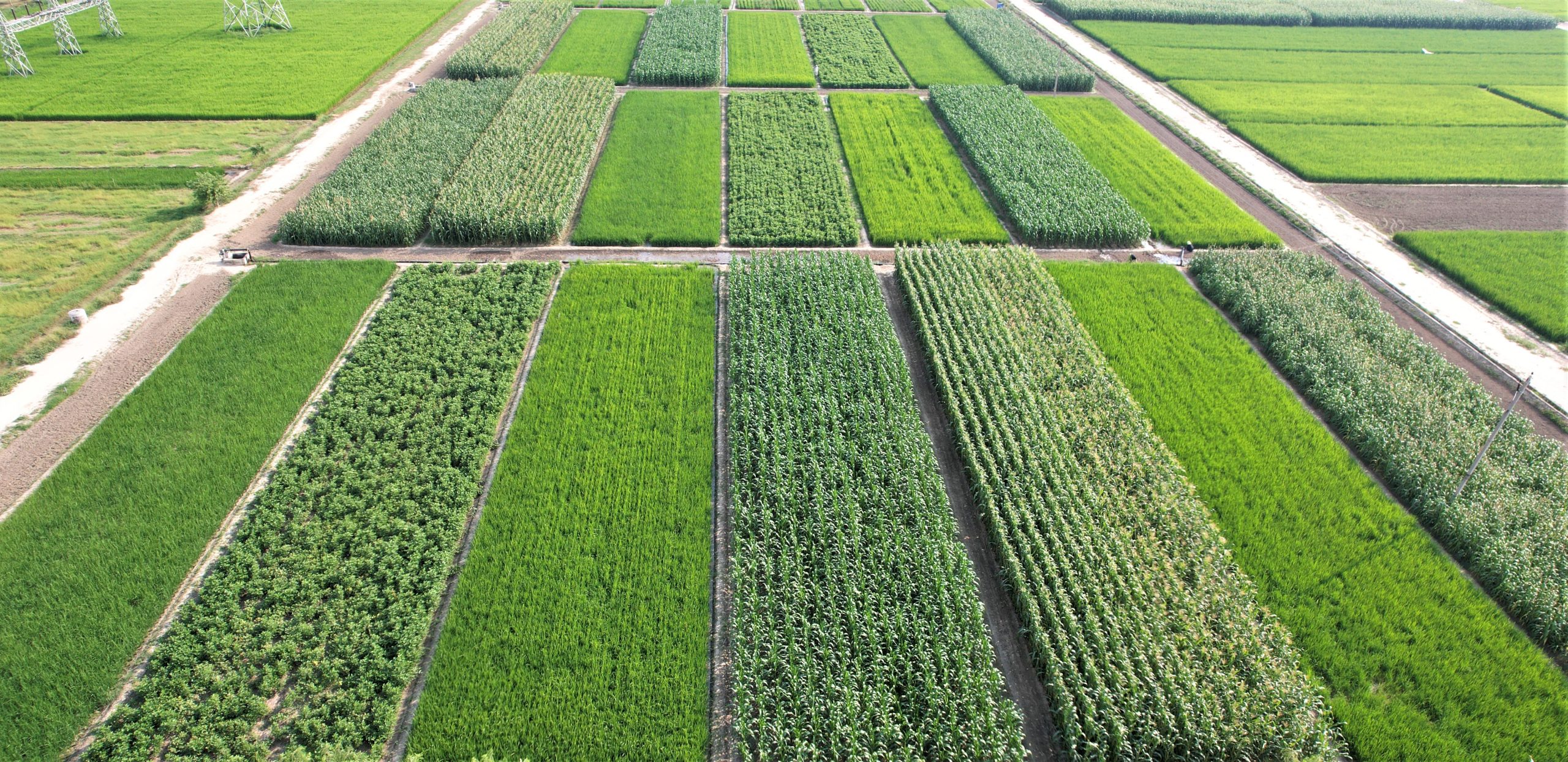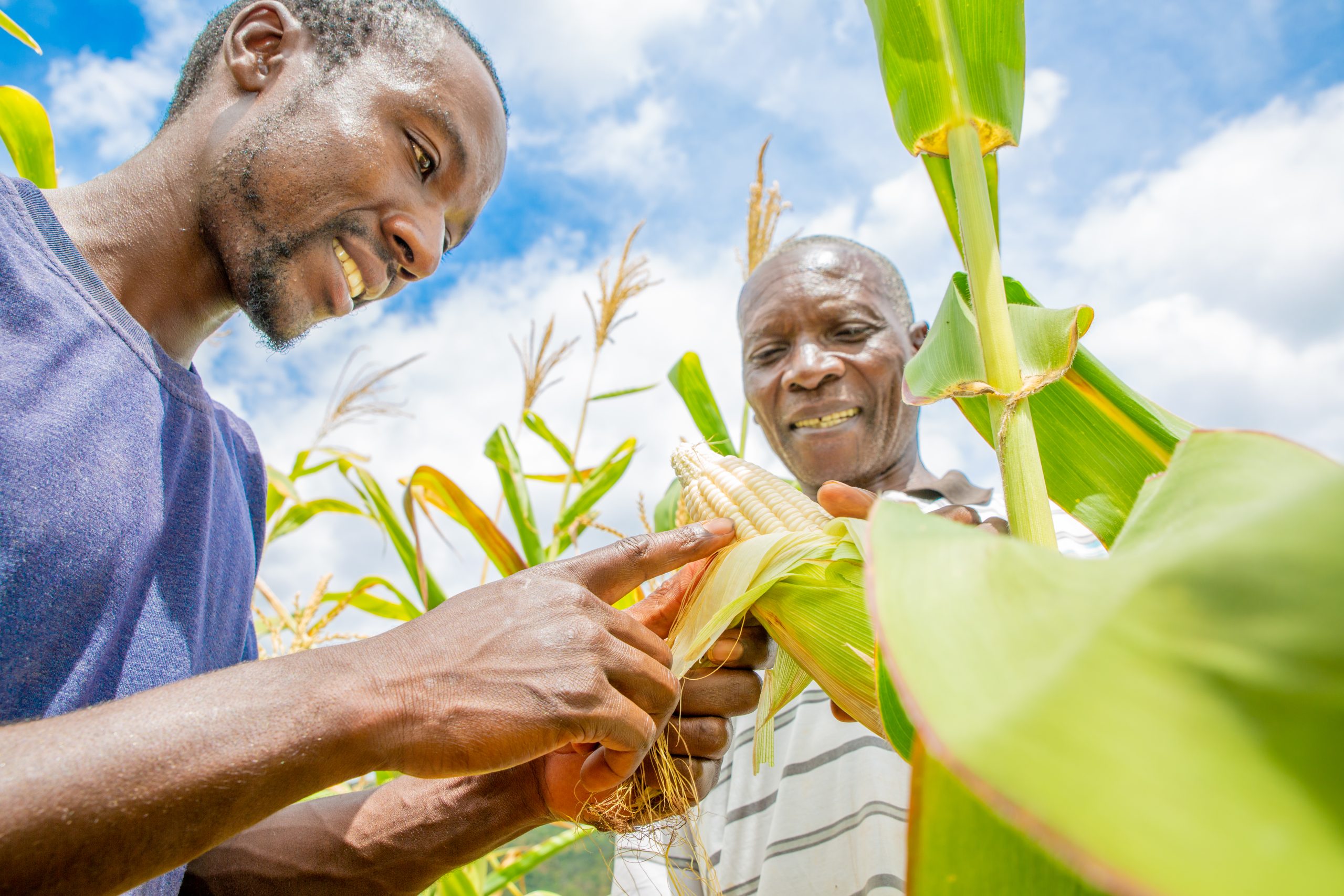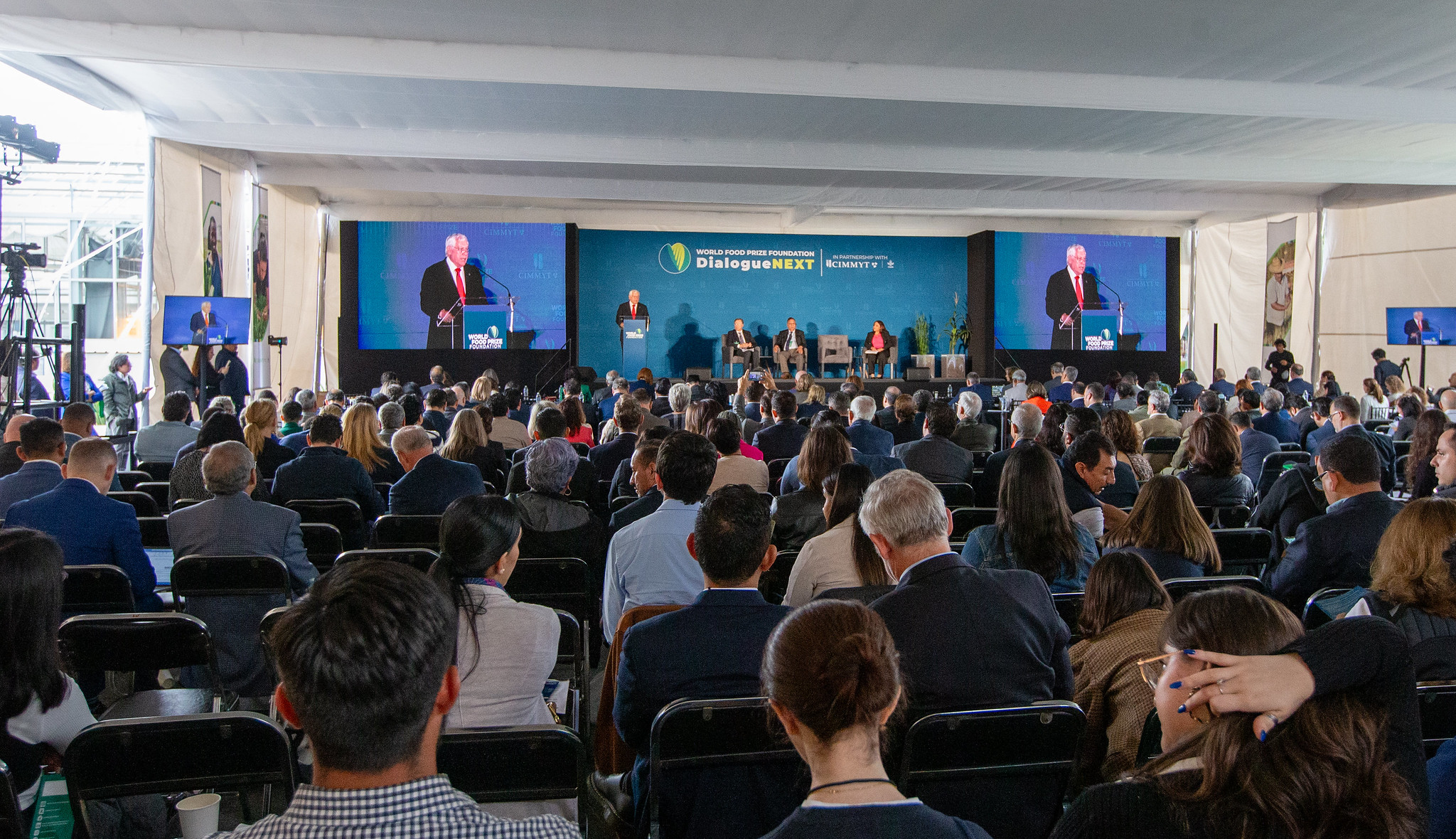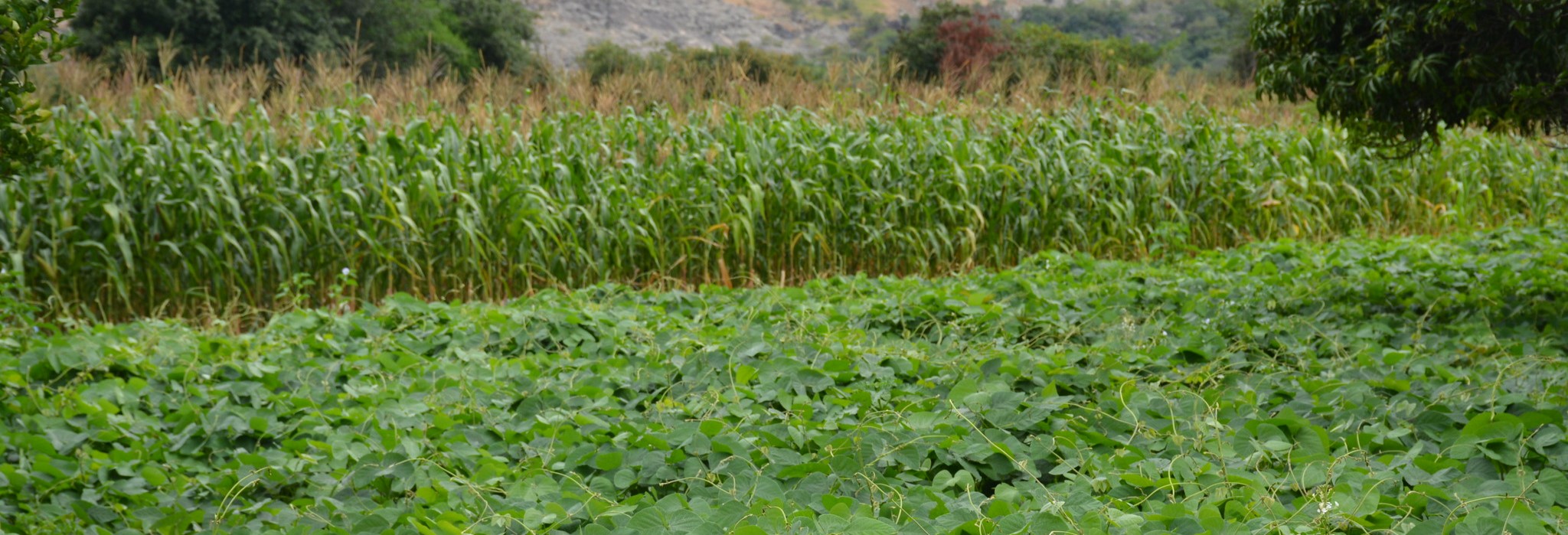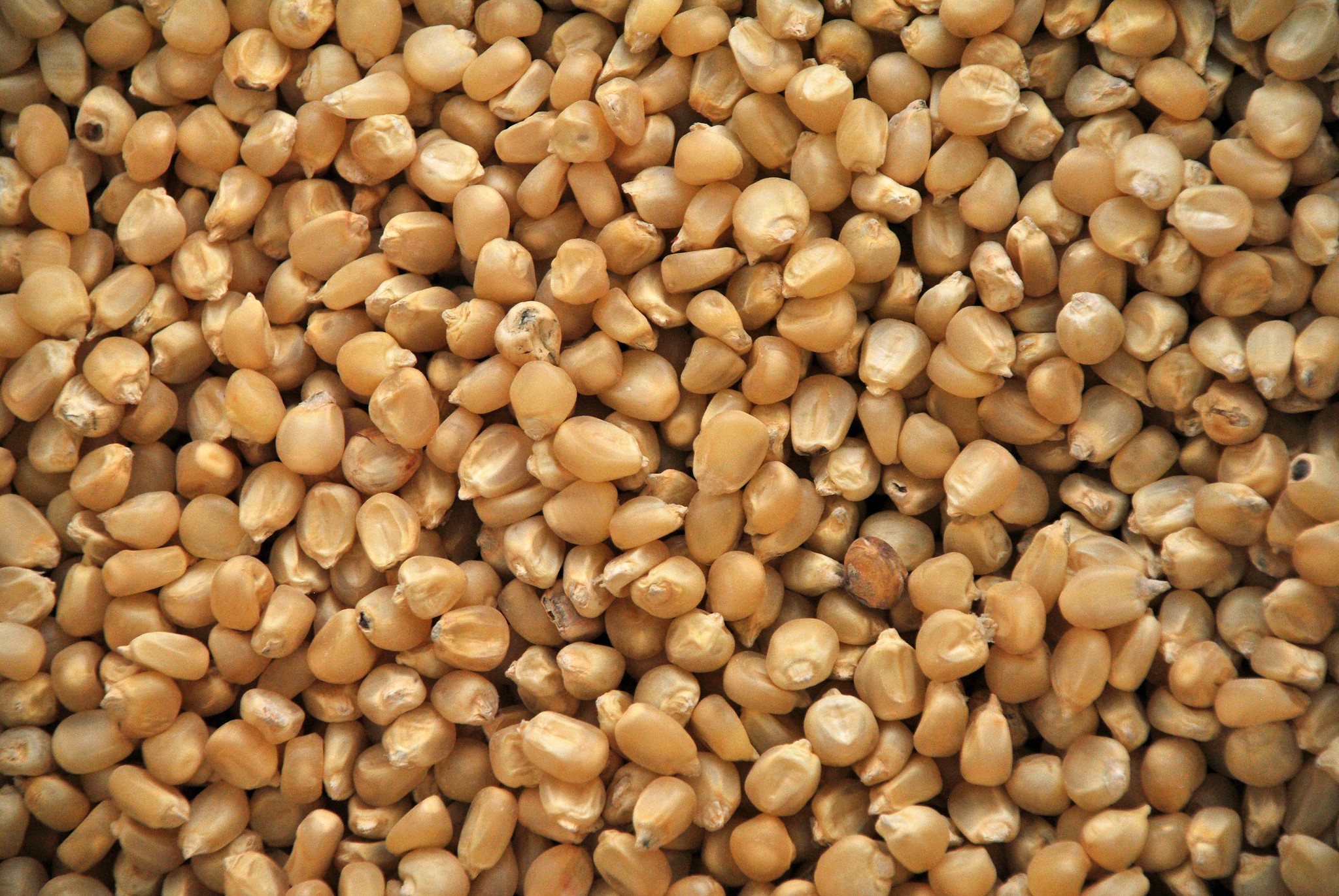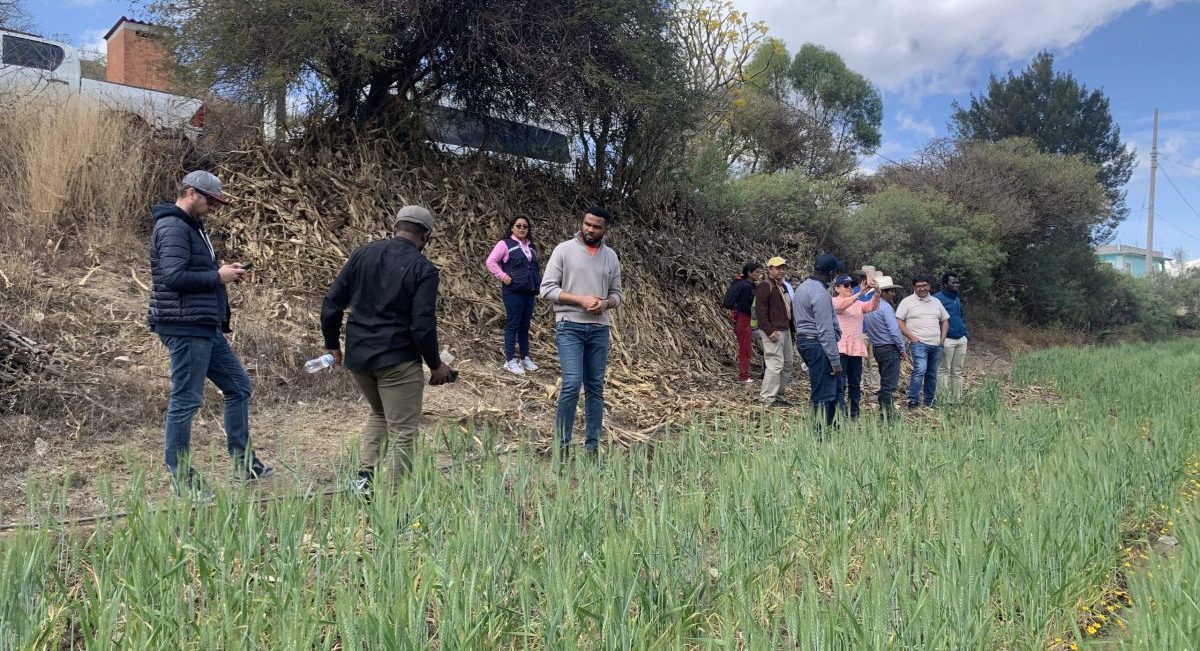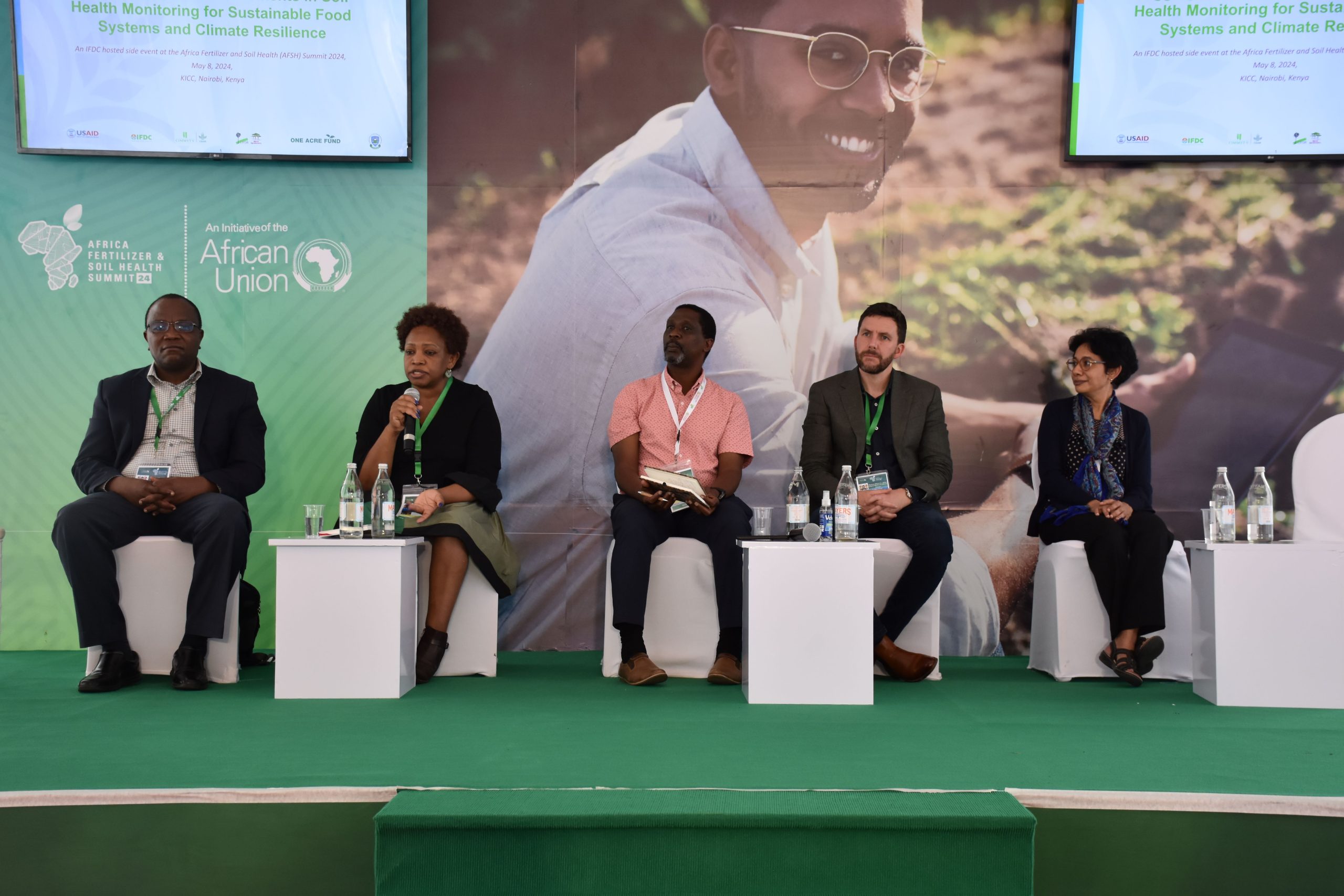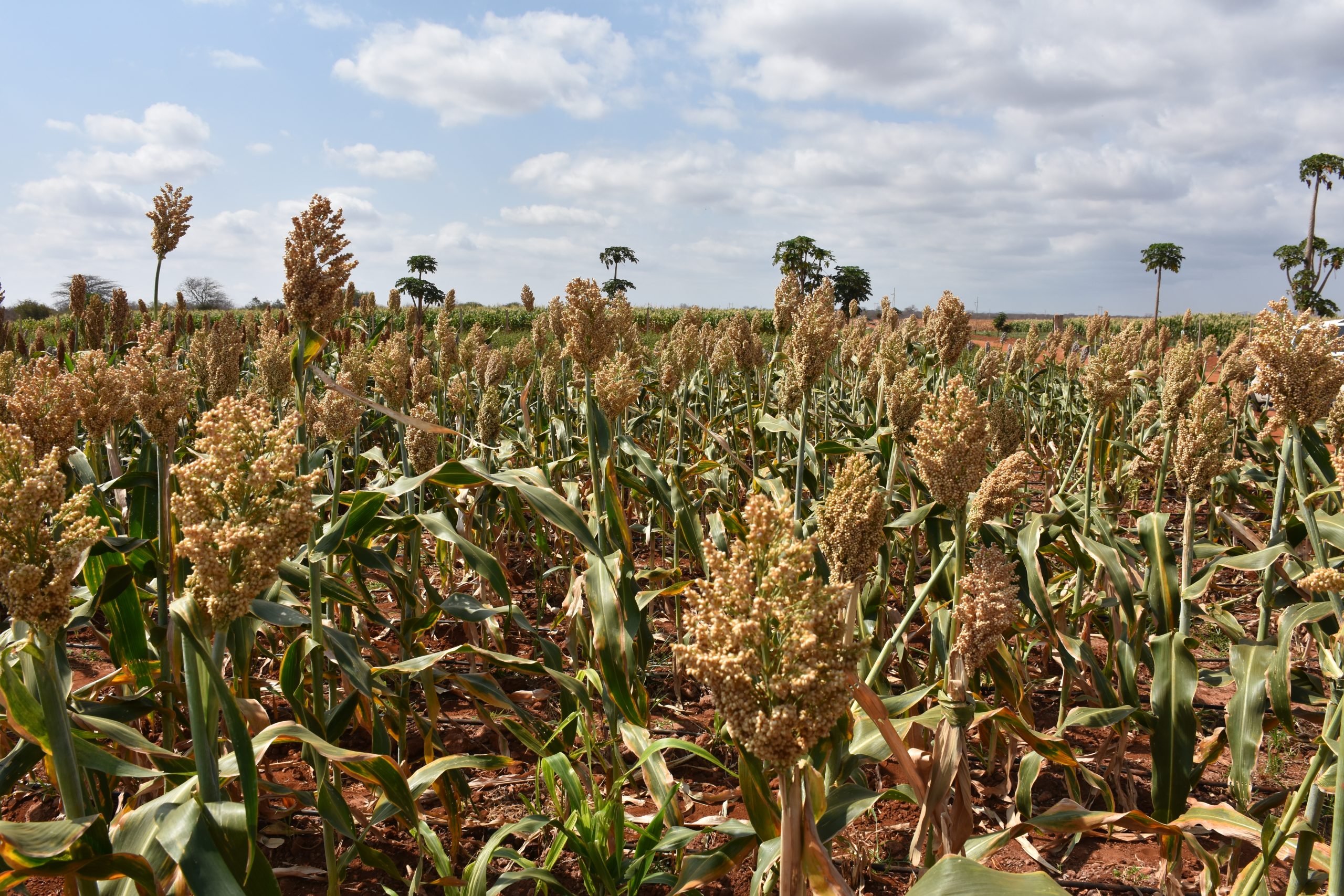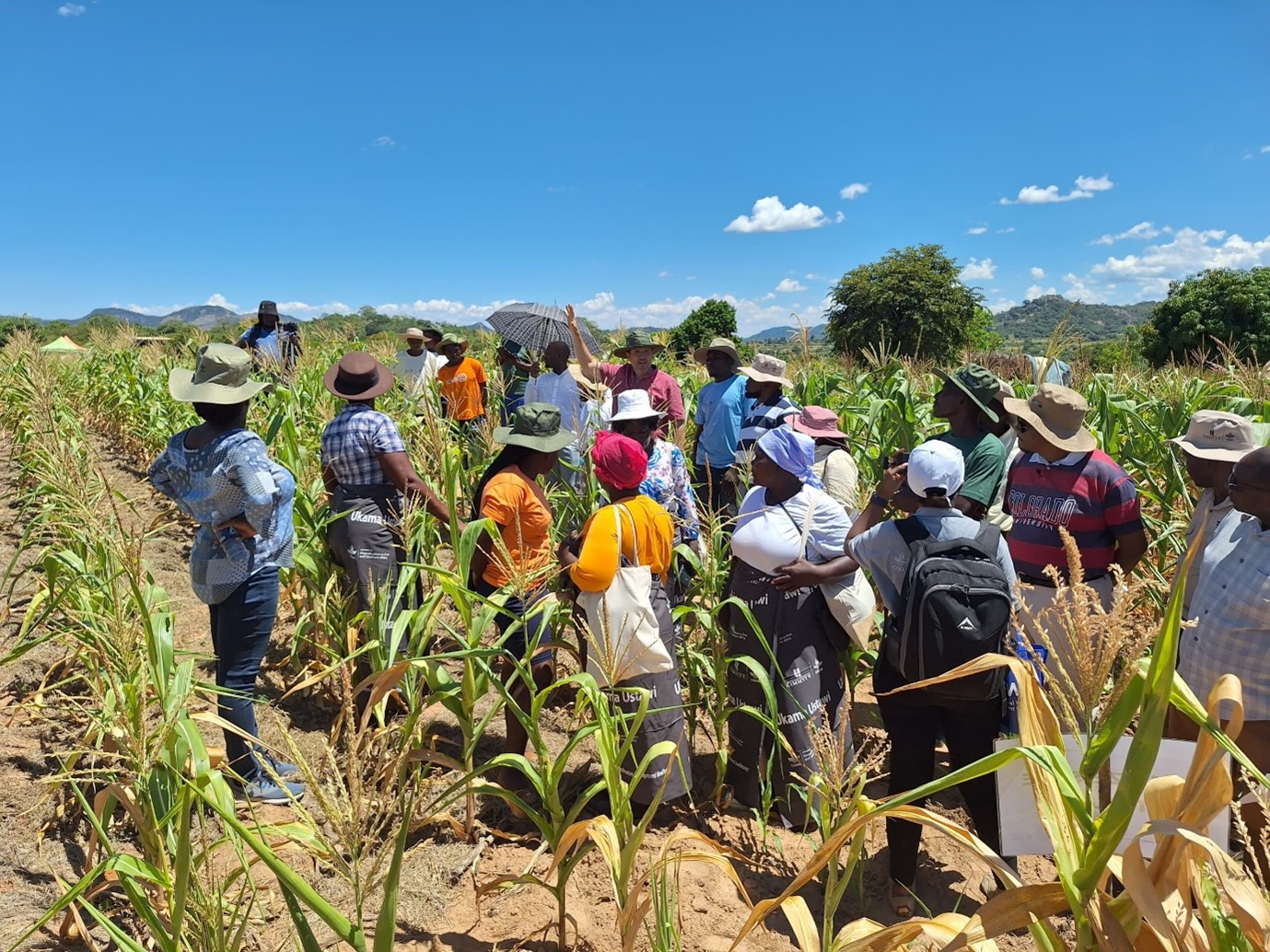Environmental health and biodiversity
The world needs better management of water, soil, nutrients, and biodiversity in crop, livestock, and fisheries systems, coupled with higher-order landscape considerations as well as circular economy and agroecological approaches.
CIMMYT and CGIAR use modern digital tools to bring together state-of-the-art Earth system observation and big data analysis to inform co-design of global solutions and national policies.
Our maize and wheat genebanks preserve the legacy of biodiversity, while breeders and researchers look at ways to reduce the environmental footprint of agriculture.
Ultimately, our work helps stay within planetary boundaries and limit water use, nutrient use, pollution, undesirable land use change, and biodiversity loss.
Melinda Smale: Exploring the Economic Value of Crop Diversity Conservation
 Environmental health and biodiversity
Environmental health and biodiversity
Source: Dailyhunt ()
Melinda Smale’s collaboration with CIMMYT has significantly advanced the understanding of crop diversity conservation, directly contributing to global agricultural sustainability and food security
Ancient Wild Relatives Hold Key to Climate-Proofing Global Wheat Supply
 Climate adaptation and mitigation
Climate adaptation and mitigation
Ancient wild relatives of wheat may hold the key to climate-proofing global food security by providing essential genetic traits for adapting wheat to the growing challenges of climate change, according to new research from CIMMYT
Wheat breeding strategies for increased climate resilience
 Climate adaptation and mitigation
Climate adaptation and mitigation
CIMMYT and its global partners, including leading institutions in China, conducted groundbreaking research to develop climate-resilient wheat varieties by analyzing the genetic diversity and adaptability of thousands of breeding lines under future climate scenarios
Helping farmers access waterlogged agricultural lands amid prevailing food insecurity in Sudan
 Environmental health and biodiversity
Environmental health and biodiversity
CIMMYT’s Sustainable Agrifood Systems Approach for Sudan (SASAS) program works to ensure that farmers have access to rich agricultural lands to cultivate their main staple and cash crops and enhance food production amid escalating conflict and prevailing food insecurity.
Linking sustainable agricultural methods
 Climate adaptation and mitigation
Climate adaptation and mitigation
CIMMYT researchers examine the possibility and benefits of linking Conservation Agriculture and carbon credits.
Eight-year study in India by CGIAR and ICAR scientists suggests adoption of Conservation Agriculture can boost yields and manage an increasing carbon footprint
 Climate adaptation and mitigation
Climate adaptation and mitigation
Agronomists, social scientists, and climate experts study the advantages of integrating Conservation Agriculture into a wide range of cropping systems practiced in the Western Indo-Gangetic Plains.
Enhancing the resilience of our farmers and our food systems: global collaboration at DialogueNEXT
 Capacity development
Capacity development
CIMMYT and the World Food Prize Foundation co-organized DialogueNEXT—Seeds of strength: Nurturing farmer resilience, held at CIMMYT headquarters in Mexico from 10 to 11 July 2024. The event brought together scientists, agribusiness leaders, farmers, and policymakers from over 200 organizations and 55 nations, to help shape global collaboration and strategies for sustainably producing nutritious food for all, within planetary boundaries.
Unlocking Zambia’s maize potential through crop diversity
 Environmental health and biodiversity
Environmental health and biodiversity
CIMMYT and ZARI trial different methods to increase maize productivity.
CIMMYT scientists deliver training to improve agriculture in Uzbekistan
 Capacity development
Capacity development
Agricultural scientists from Uzbekistan completed training on genetic resources and gene banks in Türkiye to build research cooperation and enhance agricultural knowledge across the region.
There’s an increasing interest for hubs in Mexico
 Capacity development
Capacity development
Under the umbrella of CGIAR’s initiative in Excellence in Agronomy, worldwide experts are coming to Mexico to learn more about the hubs’ methodology and how its scientific results are reaching farmers.
Digital solutions advance soil health for sustainable food systems and climate resilience
 Climate adaptation and mitigation
Climate adaptation and mitigation
Digital tools that improve access to information and enhance farmers’ ability to learn, innovate, and adapt will play a significant role in advancing soil health.
Launch of a new Global Partnership for the Vision for Adapted Crops and Soils initiative
 Capacity development
Capacity development
FAO and CIMMYT team up to boost traditional nutrient-rich, climate-resilient crops and healthy soils to enhance diet quality for today and tomorrow.
Transforming agriculture together: insights from the Ukama Ustawi Share Fair
 Capacity development
Capacity development
The UU Share Fair showcased an array of innovative technologies poised to transform agricultural practices in the region.

